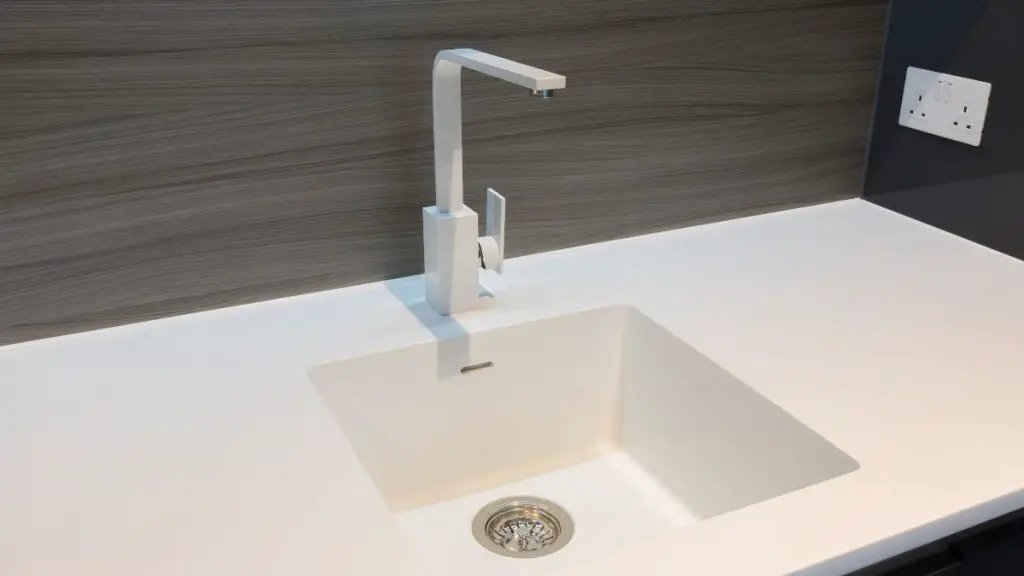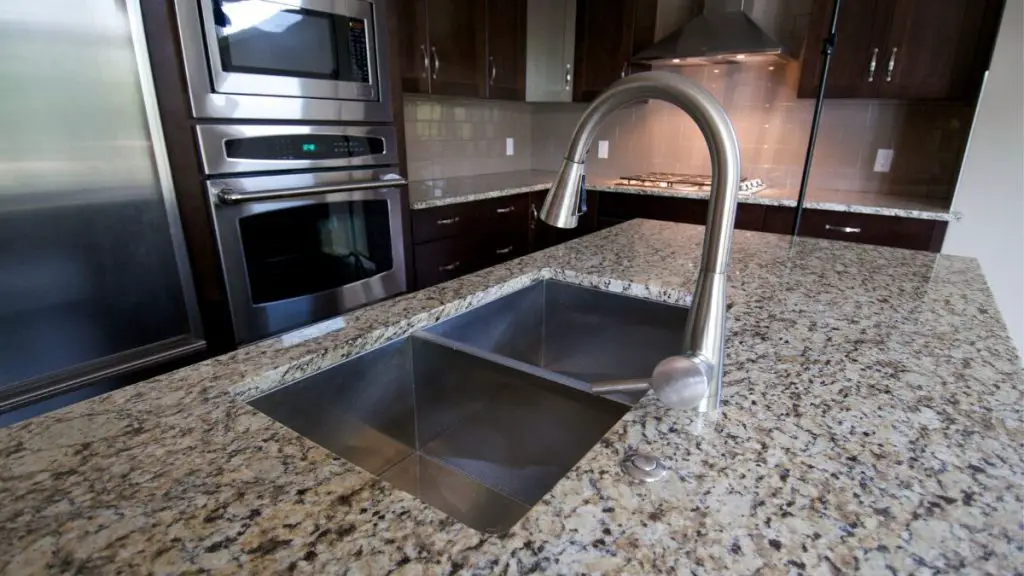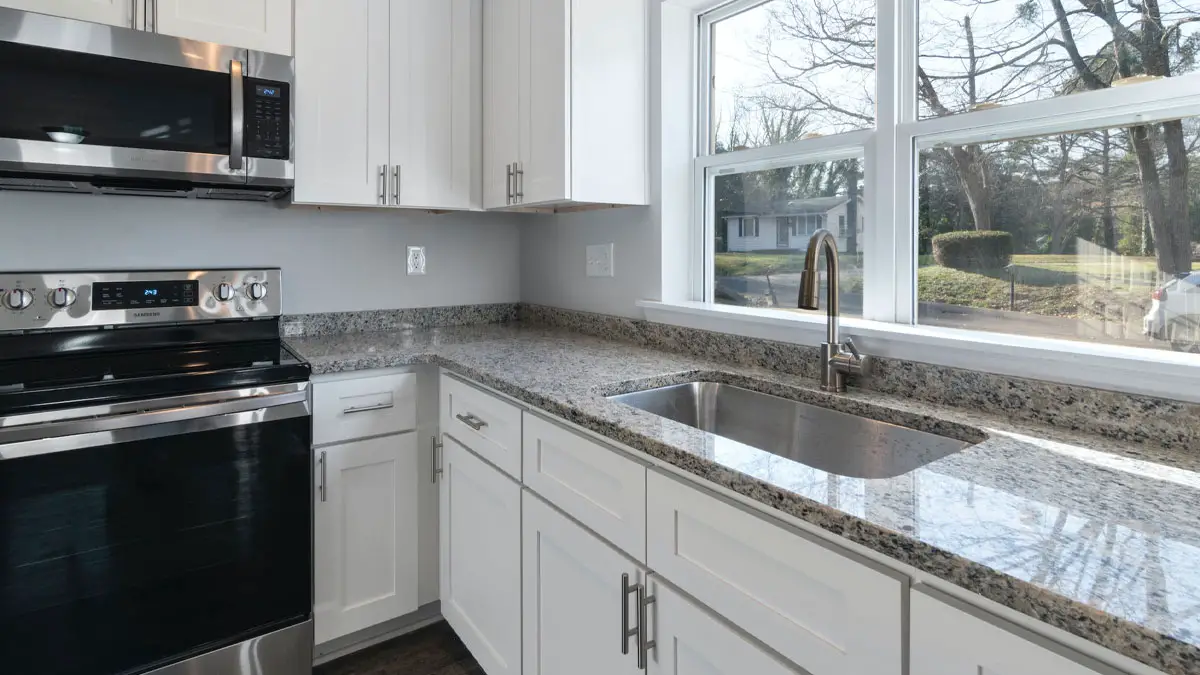You’re renovating your kitchen and finally narrowed your countertop choices to two materials: Corian and granite. Of course, both materials have pros and cons, but one of the deciding factors for you is weight. You want to ensure that your new countertops can handle whatever you throw at them and are functional for their intended use.
So you want to know: how much weight can Corian and granite support? Well, that’s what we’re here to find out! This blog post will look at the weight of Corian vs. granite and why that weight might matter to you.
What is Corian?

Corian is a solid surface material made from acrylic polymer and alumina trihydrate. Corian is known for being a durable, non-porous, and stain-resistant material that comes in a variety of colors and patterns. It is often used in kitchen countertops, bathroom vanity tops, and flooring. They are also perfect for recreational vehicles because of how lightweight they are!
Related:
- Which is the Better Countertop? Corian vs. Marble
- How to Revitalize Corian Countertops in 5 Easy Steps (Including Tips)
- Meganite vs. Corian: What’s the Difference?
What is Granite?

Granite is a natural stone that is mined from the earth. It is composed of quartz, feldspar, and mica. Granite is a favorite choice among homeowners for countertops because it is durable, extremely heat-resistant, and comes in various colors and patterns. However, granite is also heavier than other countertop materials like quartz or marble.
The Weight of Corian vs. Granite (And Why It Matters)
The difference in weight between Corian and granite will come down to who is manufacturing it. But, on average, Corian weighs about five pounds per square foot. Granite weighs approximately 18-20 pounds per square foot, depending on its density. So, granite is significantly heavier than Corian. But why does weight matter? Well, weight can affect a few things.
Weight and Installation
The weight of your countertops can affect the installation process. For example, heavier materials like granite may require additional reinforcement during installation, which could add to the overall cost. On the other hand, lighter materials like Corian can be easier to work with and may not require as much support.
Weight and Use
The weight of your countertops can also affect how you use them. Heavier materials like granite may be more challenging to maneuver and could require two people to lift. Because it’s heavier, it might not be the best choice for applications with weight restrictions.
Lighter materials like Corian can be easier to work with and may not need as much help to move around. For example, if you plan to renovate a recreational vehicle, you may opt for Corian because of weight restrictions.
Final Thoughts
If you’re looking for a durable, stain-resistant, and low-maintenance countertop material, then Corian might be the right choice. Corian is also a lighter-weight material, making it easier to work with and install.
If you’re looking for a natural stone countertop that is highly heat-resistant with a high-end look, then granite might be the right choice. Granite is a heavier material that may require additional reinforcement during installation. But granite is also very durable and comes in various colors and patterns.
Ultimately, the choice between Corian and granite comes down to your personal preference and its intended use regarding weight restrictions.

